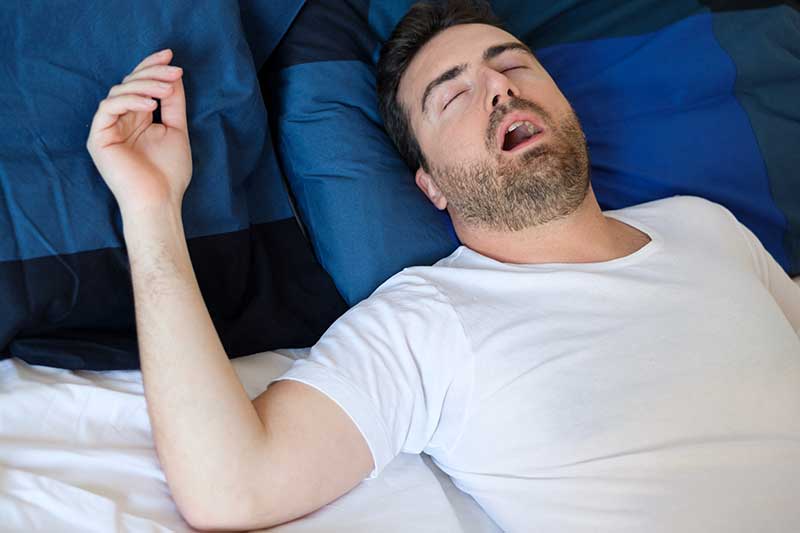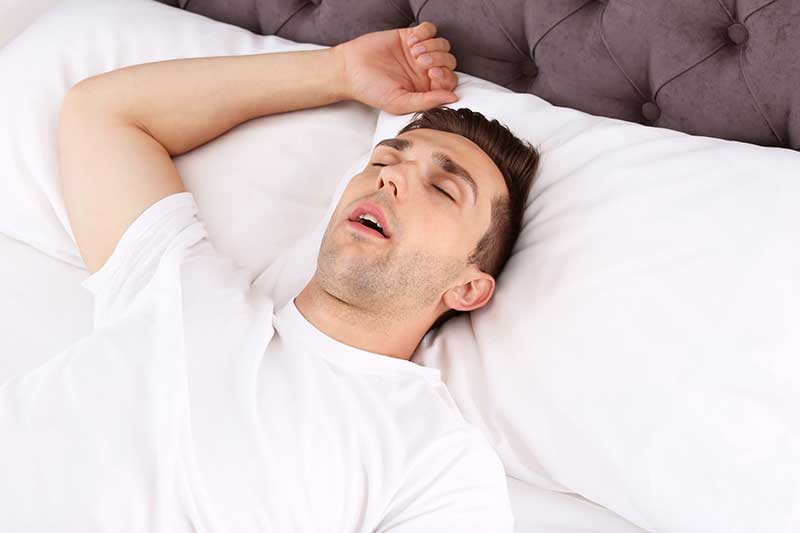Health Risks of Untreated Sleep Apnea
Individuals with the sleep breathing disorder, sleep apnea, can have their breathing interrupted as frequently as 300 times per night. Most sufferers of the sleep breathing disorder have obstructive sleep apnea (OSA), which occurs when the tongue and other soft tissues block the airway during sleep. It is estimated that 20% (1 in 5) of adults have mild OSA and 1 in 15 have moderate to severe OSA. These figures, however, do not include the estimated 75% who are undiagnosed.

Why it's so important to treat sleep apnea
Most people associate sleep apnea with one of its most common signs, snoring, and assume this is the only concern. Snoring, however disruptive it may be, is the least severe symptom of the sleep breathing disorder. In fact, sleep apnea puts sufferers at significantly increased risk of death, reducing an individual’s estimated 20-year survival rate by at least 30%. This increased risk of death is due to several side effects of the sleep breathing disorder, including:

- Cardiovascular Disease – 38,000 individuals die each year due to cardiovascular problems related to sleep apnea. Individuals with obstructive sleep apnea are at four times the risk of suffering a stroke than individuals without the disorder. Seventy percent of heart attack patients also suffer from obstructive sleep apnea, and 43% of patients with mild cases of obstructive sleep apnea also suffer from hypertension.
- Diabetes – Sleep apnea is also strongly correlated with diabetes. Forty-eight percent of all individuals with type two diabetes and 86% of obese individuals with type two diabetes also suffer from sleep apnea.
- Car Accidents – Daytime drowsiness is a real safety concern; nodding off in public is not only embarrassing, but also dangerous when driving a vehicle or operating equipment. Each year, drowsy driving causes an estimated 100,000 car accidents, 40,000 accident-related injuries and 1,550 fatalities.
In addition to the life-threatening side effects of sleep apnea, the sleep breathing disorder also leads to a whole host of additional symptoms, such as:
- depression
- anxiety
- memory problems
- migraines and headaches
- weight gain
- impotence
Sleep apnea also causes sleep disruptions, insomnia and nightmares.
Comfortable and discreet sleep apnea treatment
At Schaffer Dental Excellence, we treat patients suffering from obstructive sleep apnea with an alternative to the bulky CPAP machine, the ProSomnus Sleep Device. Worn at night, this sleek mouth guard prevents the tongue and soft tissues from collapsing and blocking the airway, allowing you to breath freely. To learn more about sleep apnea or to schedule a sleep apnea appointment, contact our office today.



